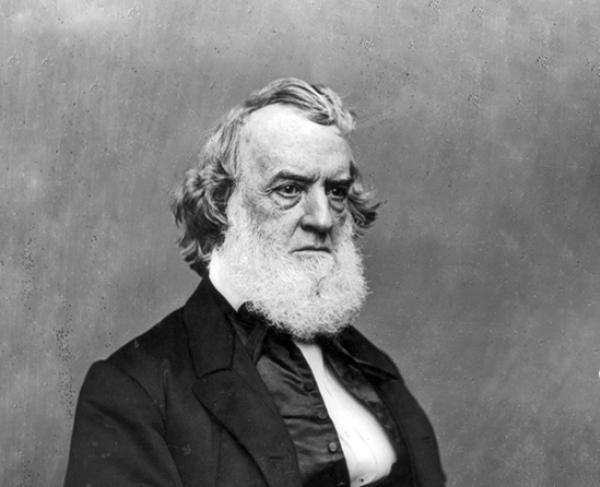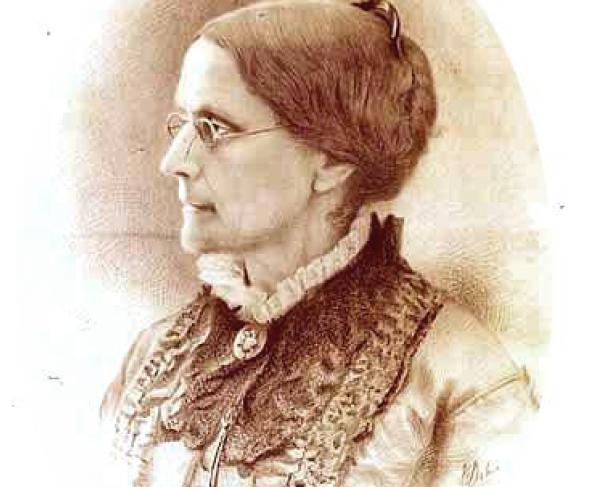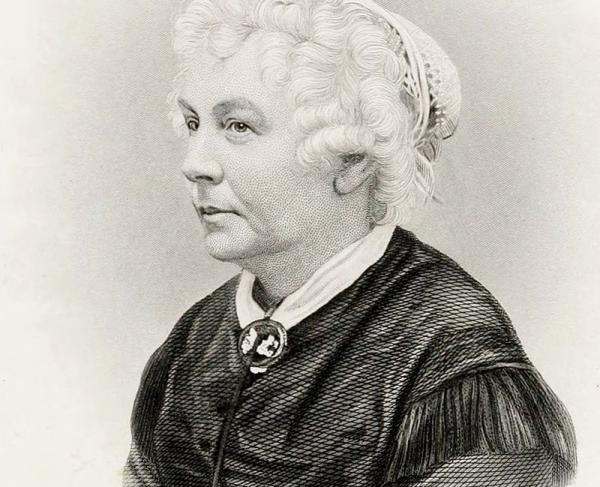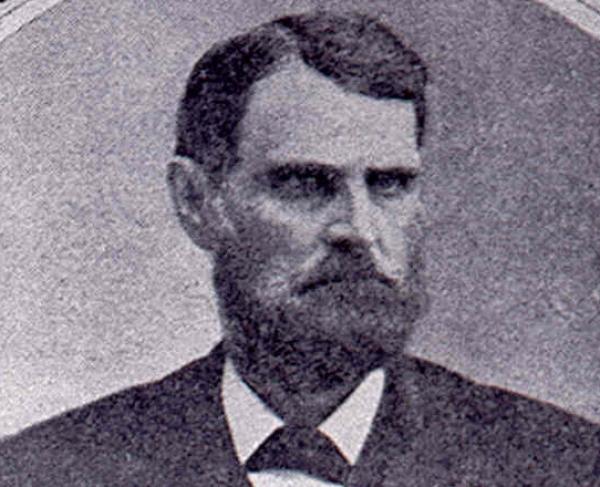Gideon Welles

Gideon Welles was born in Glastonbury, Connecticut, on July 1, 1802. Welles descended from a long line of politicians and office holders. His father, Samuel Welles was a delegate to the 1818 convention that drafted Connecticut’s first state constitution. His ancestor Thomas Welles was an early governor of colonial Connecticut.
Welles was educated at the Cheshire Academy in Connecticut and at the American Literary, Scientific and Military Academy in Norwich, Vermont (later renamed Norwich University). After college, Welles attempted to study law, but he was unable to muster up enough interest in the subject. He realized that his true passions were politics and journalism. In 1825, he began writing for the Hartford Times. Within a year, he was put in charge of the paper. As editor of the Times, Welles worked diligently to advance the interests of Andrew Jackson and the Democratic Party.
In 1826, the same year in which he became the editor of the Times, Welles was elected to Connecticut’s General Assembly. He would serve until 1835. In an era in which newspapers were closely aligned with political parties, it was not unusual for a newspaper editor to hold public office. Welles would remain in charge of the Hartford Times until 1837.
In 1835, Welles married Mary Jane Hale. Welles and his wife would go on to have nine children, although only three would survive to adulthood.
In 1836, Welles’s loyal support for Jackson and Jackson’s political heir Martin Van Buren paid off when he was appointed Postmaster of Hartford. From 1846 to 1849, Welles served as Chief of the Bureau of Provisions and Clothing for the Navy. He was beginning to drift away from the Democratic Party, however. Like many supporters of Martin Van Buren, Welles resented the growing dominance of pro-slavery Southerners in the party. In 1848, Welles supported Van Buren’s bid for the Presidency on the ticket of the Free Soil Party. After Van Buren’s defeat, Welles temporarily rejoined the Democratic Party, until the passage of the Kansas-Nebraska Act and the ensuing controversy drove him into the nascent Republic Party in the mid-1850s. In 1856, he founded the Hartford Evening Press in order to advance the free soil cause.
After winning the presidential election in 1860, Republican president-elect Abraham Lincoln realized that in order to keep his party unified, he would need to include both former Whigs and former Democrats in his cabinet. This led him to appoint former Democrat Welles as Secretary of the Navy.
In Lincoln’s cabinet, Welles was a moderate voice, which led to tension with radicals such as Secretary of War Edwin Stanton and Secretary of the Treasury Salmon P. Chase. Ironically, Welles also clashed with fellow moderate William Seward, Lincoln’s Secretary of State.
When the Civil War began, the US Navy possessed only 76 ships. A highly capable administrator, Welles presided over a massive expansion of the Navy’s size and capabilities. By war’s end, the Navy had used 671 ships and had grown into the largest navy on the planet. Although he initially opposed the policy, Welles successfully implemented the naval blockade of Southern ports, which helped strangle the Confederate war effort. During his tenure, the Navy not only grew, it modernized, adopting one of the most important innovations in its history: the ironclad warship. He most famous of the ironclads used by Welles’s navy was the USS Monitor.
Among historians, Welles is well known for his extensive Civil War era diaries. James McPherson had described Welles’s diaries as “one of the most important building blocks for our understanding of the Civil War.
After Lincoln’s assassination, Welles continued on as Secretary of the Navy in the cabinet of Andrew Johnson. Welles’s support for Johnson would eventually estrange him from other Republicans and lead him back to the Democratic Party. Gideon Welles died on February 12, 1878.


